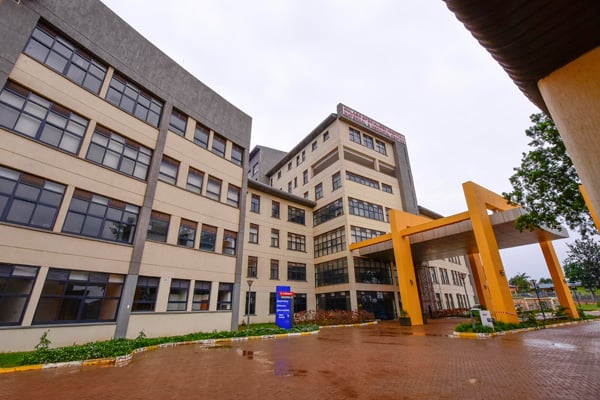Choosing between hotels and health care is wrong

More than 1,000 medical interns, including doctors, pharmacists, and nurses in government hospitals through their umbrella Uganda Medical Interns United (UMIU), went on strike over delayed payment, salary disparities, and other welfare issues.
What you need to know:
- Of what use is any public investment, using taxes largely paid by long-suffering Ugandans, if their life-and-death right to quality health care is overlooked?
This is a clarion call to the people’s representatives in the House: join our medical fraternity in the push for quality public health service delivery.
Our MPs will have noticed that one more peaceful attempt by medical interns to petition Parliament this week was again dispersed by the police. The fraternity faces a formidable and unyielding politico-bureaucracy determined to treat citizen healthcare as a by-the-way given its callous mistreatment of medical interns. We have lost count of how many times the Uganda Medical Association has appealed to the Ministry of Health and wider government to sort out internships. The bureaucracy has conveniently dressed up its appalling behaviour in the superfluous claim that there is no money.
As millions of Ugandans consequently suffer untold misery in understaffed health facilities, the record will show that many responsible citizens -- who pay the taxes which keep government running – refuse to accept that we cannot afford medical interns, or to appropriately staff public health facilities.
Intern doctors provide an invaluable service in less than optimum conditions. The least that Parliament can do is to support their noble efforts.
While it’s true that Uganda’s finances cannot cover every public need, it is also an undeniable fact that our limited resources are sometimes squandered. A case in point is the intended multibillion ‘investment’ in Munyonyo Convention Centre. An edifice which could turn out to be another bottomless pit into which scarce resources vanish, it may be described as a vanity project. The resort’s value to the taxpayer is debatable. Its predecessor, the Munyonyo Commonwealth Resort and Conference Centre was also controversially completed through a similar joint venture with the same wealthy businessman ahead of the Commonwealth Heads of Government Meeting in 2007. The taxpayer, by default, ploughed at least $15 million -- approximately Shs56 billion today – into that transaction whose benefit remains hidden. Proponents of such schemes say Uganda is building necessary infrastructure to position itself as a destination in the money-spinning global conference market. To that end, ruling party MPs were whipped into approving a Shs47 billion supplementary for the construction of Munyonyo Convention Centre. The government wants the centre ready when Uganda hosts the 19th Summit of the Non-Aligned Movement (NAM) in January next year.
Obviously, the NAM summit is a big deal. The forum is the second largest grouping of states worldwide after the United Nations and potentially comes with important spin-offs for the country. But it also exposes the government’s proclivity for ostentatious undertakings at the expense of more critical needs of ordinary Ugandans. Of what use is any public investment, using taxes largely paid by long-suffering Ugandans, if their life-and-death right to quality health care is overlooked?




